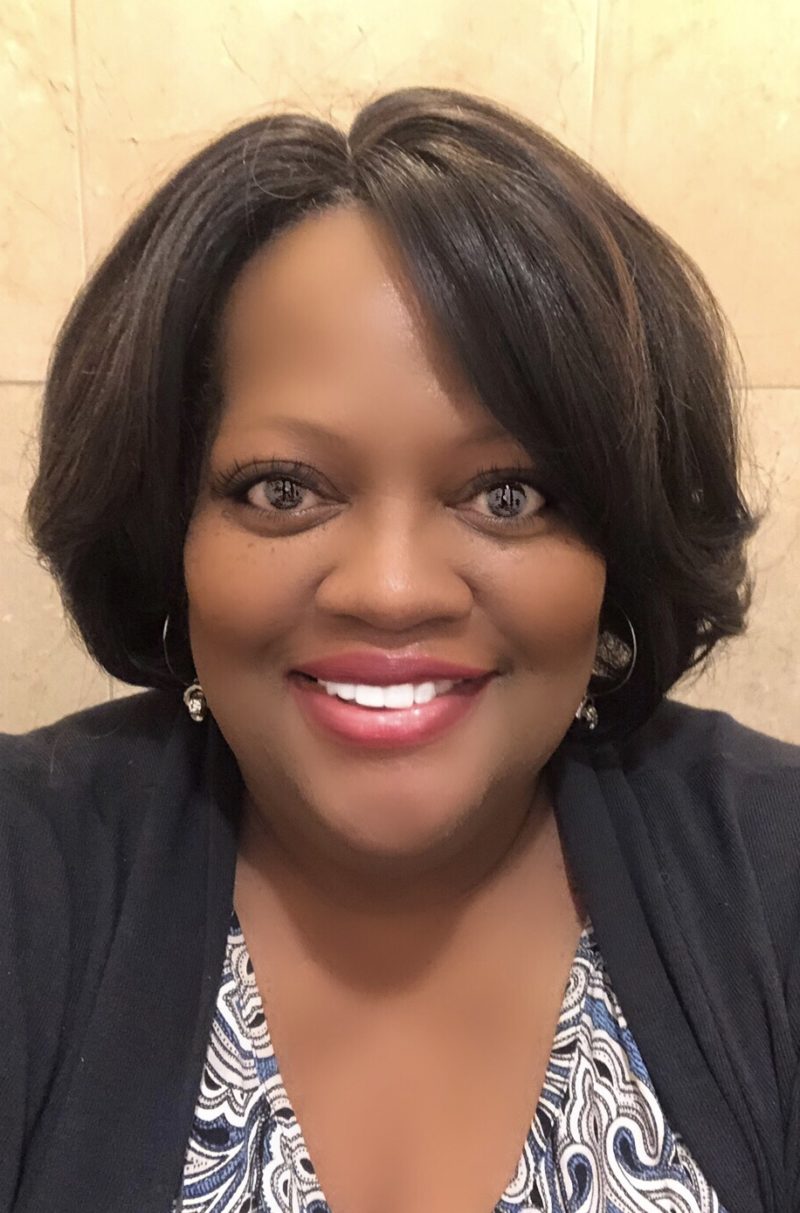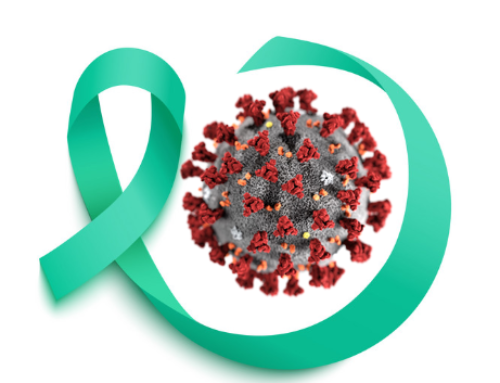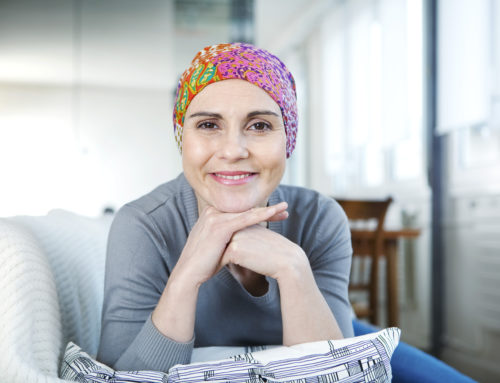CANCER IS A HUMAN EXPERIENCE – NOT JUST A MEDICAL ONE
Mom, just send me a text if you need anything, I can barely hear you when you speak.
Advice from my daughter as I recover from a thyroidectomy I had a few days ago. As I wait for my pathology results, I’m recalling my first encounter with cancer and how I lost my voice.
I was diagnosed with Stage 3a Granulosa Cell Tumor, Ovarian Cancer at 50 years old. I was training for the Chicago marathon and was extremely fatigued. After several tests, my primary sent me for an ultrasound and I was told it was an ovarian cyst by the gynecologist she referred me to. I continued to prepare for my race – in fact, I ran a 8k race the day before the surgery. I went in at 6:00 am and I woke up much later that night with a hand on my shoulder saying, “it’s cancer.”
This is where the story gets weird and what eventually led to 18 months of outpatient therapy. I signed a document that basically said, hey, if we find cancer, you’re giving us permission to do a full hysterectomy, but only my fallopian tubes and ovaries were removed. Of course I wanted answers, but I didn’t get any. The gynecologist could barely look me in the face. He was vague and clear at the same time when he said, “ you will no longer be in my care.” I sat there stunned with my written questions as I watched him walk out the door. That’s when my mental stability started to crack. I took the same paper with my written questions to my appointment with the oncologist. I was greeted by the PA. She told me how great the surgery went and mentioned a number – 535 – then said I wouldn’t need chemotherapy. As I waited for the oncologist, I thought, great! No chemotherapy! The oncologist entered the room, sat down and said, “I’m scheduling four rounds of chemotherapy – wait, what?! As I left, I caught a glimpse of that PA sitting in an office. I never felt so much rage. What was with all the lies?! What happened in that operating room?!!!
I took the papers the oncologist gave me and I saw it for the first time – IIIA/GCT – the words had been written and circled on the back of the referral for my chemo port. I sat in the car and googled it on my phone. There wasn’t much in the search but an hour later, I was still in the parking lot, crying because I had fallen down an internet rabbit hole on mortality statistics on ovarian cancer. I had no idea at the time, that I was looking at data on epithelial ovarian cancer. All I knew in that moment was I was dying in less than 5 years.
I needed a second opinion on this chemotherapy fast. Someone I’d met in a forum lived in Chicago and recommended an oncologist. I got an appointment and what happened next felt like an out of body experience. I was greeted by a medical student who began to review my file. When he said, “patient chose to keep her uterus”, I thought my head was about to explode! ! I’m 50 years old and in menopause. Why would I tell anyone that I wanted to keep my uterus?!!! A few minutes later the head of oncology walked in, sat down and said “DITTO.” I felt like I was in a nightmare! First, this guy is reading stuff from my file that I’m not aware of and now the head of oncology, the one I’ve waited two weeks to see for an informed second opinion, says DITTO. Where are my pathology slides? Did he view them in another room? To add insult to injury, I was told to undress, a finger was stuck up my vagina and in my rectum and I was sent on my way. I was charged $500 for that gynecological visit. Later that week, I got a call from medical records asking what was the address of the hospital reviewing the pathology slides. What was the DITTO about? So much for a second opinion. More like a head nod to a colleague. My paranoia got worse.
I contacted my oncologist after the chemo port surgery. I’d finally found something on the internet that gave me pause. I discovered that GCT was a slow growing cancer! Why was I doing chemo? Chemo is for fast growing cancers. Problem solved – no chemo. I shared my discovery and yet again, to my surprise, the oncologist looked at me and said, DO YOU WANT TO LIVE? THEN DO WHAT I SAY. I cried hysterically that entire day.
For two days I looked up everything I could find about BEP. I emailed every article to my oncologist that I could find explaining how harsh it was and I waited for a response. Nothing. The day of my first infusion I felt like a zombie. By the fourth day I actually was one. I was admitted into the ER with a low heart rate. I just knew we would finally have a real talk. I almost died! Instead, the oncologist looked at me and said, “wow, this will make a great journal article.” A month later I finished my treatment with carbo taxol.
At this point, I was emotionally exhausted. I was extremely paranoid and super depressed. All I thought about was death. What did I allow them to put in my body? Why am I allowing this oncologist to make all of the decisions? I reached out to my primary and told her I needed help dealing with all of this. I spent the first few months in therapy, crying, and angry. I was never angry at cancer, I didn’t hate cancer. I hated who I had become. In therapy, I would share the zingers my oncologist would say to me just before each infusion and I would tell my therapist how I just sat in that chair hooked up to that poison like a bullied, verbally abused human being and I felt powerless.. My therapist encouraged me to try to tell my oncologist how I felt. So, at my next scheduled infusion, I started off the conversation with, “when I asked you how I got ovarian cancer, you said, “you’re just unlucky.” I need you to know that your words are impacting me in hurtful ways and I don’t feel you are the right person to be in charge of my care.” I got what can only be described as the best “Listen Linda” beat down ever! I remember phrases like, “I didn’t even know you – I met you on the operating table!” “You are super sensitive and ask a lot of questions!” “Most women are more concerned with living than having a spitting contest with their doctor!” Whelp! At least we both had an opportunity to say what was really on our minds.
Seven years later, I’m still in remission. I’ve come to terms with what that oncologist lacked in humanity, was made up for with impeccable surgical skills. I saw that oncologist at a national conference years later. I almost choked when I saw the presentation title. How to discuss recurrence with your patients. Listening to that presentation was like experiencing a totally different person. I realized in that moment that my life and my cancer care were separate and I had given that oncologist control over both. One thing I know for sure. A cancer diagnosis is life changing and it’s scary. No one needs the additional burden of a difficult relationship with the one person whose job it is to save your life. Follow your gut. If you feel the oncologist is not listening, address it early on. If that oncologist is not the right fit, don’t hesitate to select someone different. Don’t let anyone rush you into finding the best cancer care provider for you.
I have found meaning in that horrible experience. Through my advocacy efforts, I have shared my cancer story to audiences of people with cancer, caregivers and researchers. I’ve participated with advocacy organizations on Capitol Hill urging my elected officials to increase funding for ovarian cancer research. I’ve been able to develop relationships with cancer professionals who have answered my questions about my diagnosis. I joined several social media forums to discover I wasn’t alone, that many women had difficult relationships with their oncologists. These forums have become safe places for all of us to begin the process of healing. I’ve also contributed to seminars for women with rare cancers on how to get involved in research advocacy, which has become my passion. I still write down my list of questions wherever my advocacy opportunities take me!
A wonderful opportunity to speak to medical students has just being afforded to me. I’ll actually be speaking where I received my care. My therapist would be so proud of me! I hope they will hear through my cancer story that cancer is a human experience and not just a medical one. As they grow in their profession, I hope they establish their own voice but not at the expense of the voices of the patients.
Kimberly Richardson
Globe-athon is proud to partner with Smart Patients, an online community where patients learn from each other about their cancer journeys. On Smart Patients, you can discuss issues raised in this blog post and beyond. Join here: https://www.





